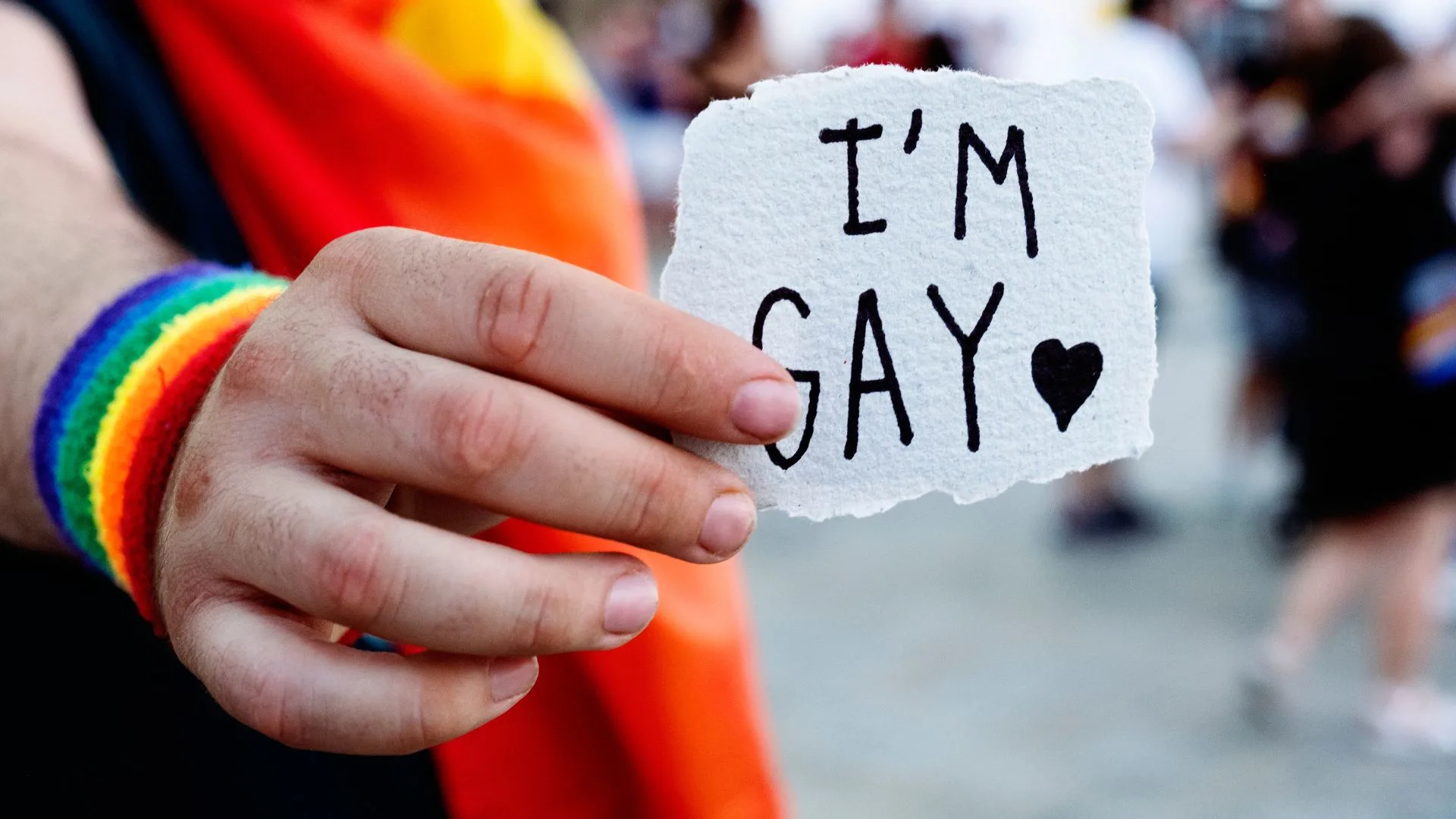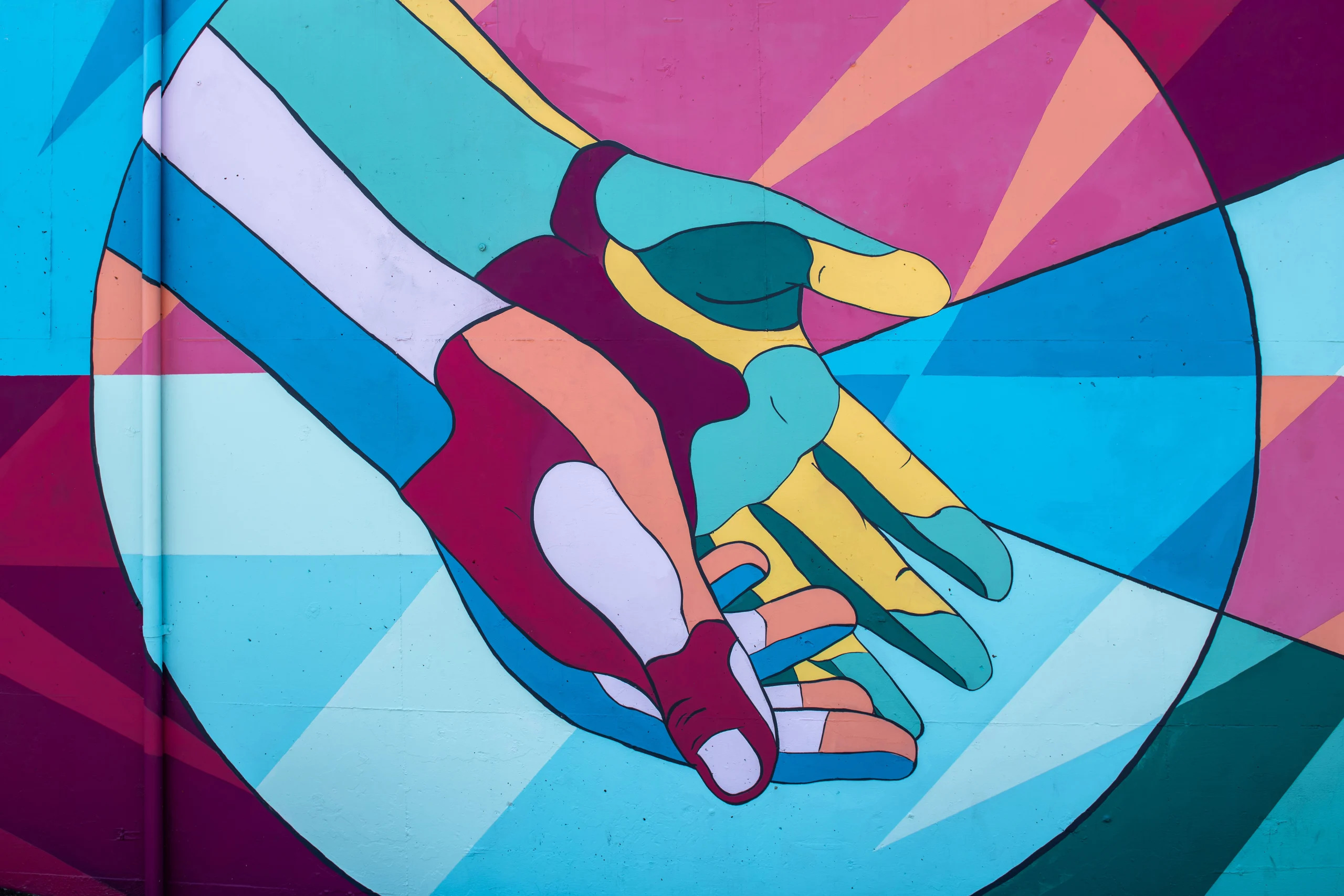One of the hardest things a queer person has to contend with is revealing their true identity as part of the LGBTQ community to friends and family, by coming out as gay.
For so long, we kept this part of us a secret. In fact, we may have even spent years denying this identity to even ourselves, let alone others. Once we come to terms with the fact that this is who we are, we eventually come to a point where we realize it’s more stressful to keep our true identity a secret than to simply come out with the truth and tell others.
Why Does a Gay Person Fear Coming Out?
Why is it so hard to come out as gay? For one thing, many queer people are met with homophobia, religious beliefs, and shaming or invalidating remarks about our queer identity.
Parents often don’t want the dream of who they thought their child was to be shattered. Or maybe they are afraid of what their child’s authentic gender identity means for their happiness and safety, in life. If we are to live out life as a queer person, the journey may appear more “difficult”.
On an instinctual and biological level, we also don’t want to disappoint our primary caregivers, because they literally have our security in their hands, often providing basic needs like food and shelter.

Being Gay Doesn’t Have to Be a Burden
Humans are tribal beings, and we need support from others around us to survive. If we feel like something about us is going to get us ejected from the tribe, we’ll do anything we can to avoid that happening and keep that secret hidden.
What can ultimately happen if we insist on keeping our true sexual orientation hidden? One of the most overwhelming consequences of keeping up the charade of being gender-conforming persons or simply put straight people, when we are actually gay, bi, queer, non-binary, or trans people, is that keeping the secret will eventually turn out to be more exhausting than the thought of coming out as gay in front of your loved ones.
We may have upheld lies for years or been the victim of assumptions about our sexual identity that we just didn’t correct, and that gets really old, tiring, and invalidating over time.
Strategies for Coming Out to Our Family and Friends
So, if it’s finally time to come out as gay, what are some ways we can navigate that, to make it easier on ourselves? It doesn’t matter if you’re a gay teenager, a lesbian woman, or if you have a bisexual identity! Coming out is never easy!
Remember that the journey of self-discovery, identity, and how we present is deeply personal, and reaching a point where we are ready to share our true identity with others can be both liberating and nerve-wracking.

The process varies for everyone, but having these ideas in mind can help make the experience more manageable, and potentially smoother.
- Self-Acceptance: Before coming out to others, it is crucial to embrace your own identity and be comfortable with who you are. Take the time to reflect on your feelings, educate yourself about the LGBTQ community, and connect with supportive individuals who can provide guidance. Building self-confidence will empower you during the coming out process.
- Timing: Choosing the right time to come out can significantly impact the reception you receive from friends and family. Consider the dynamics of your relationships and the emotional state of those involved. It may be helpful to pick a moment when you can have uninterrupted conversations and ensure that everyone is in a calm and receptive state of mind.
- Plan Ahead: Preparing for the conversation can alleviate anxiety and provide a sense of control. Reflect on what you want to say and anticipate potential reactions or questions. Having answers ready and being knowledgeable about LGBTQ topics can help address concerns or misconceptions that might arise. However, it’s essential to remember that you don’t have to educate or justify your identity to anyone.
- Choose Supportive Allies: Identify individuals in your life who are likely to be supportive and understanding. Consider coming out to them first, as their positive reactions can bolster your confidence. Having allies by your side during the coming out process can provide emotional support and a sense of security.
- Seek Professional Guidance: If you anticipate challenges or fear negative reactions, seeking support from a therapist, counselor, or LGBTQ support group can be immensely beneficial. The therapists at LGBTQ Therapy Space are extremely versed in the nuances of coming out, and how scary and difficult it can be. These professionals can offer guidance, coping strategies, and a safe space to discuss your feelings and concerns.
- Letter or Email: Sometimes, finding the right words in a face-to-face conversation can be challenging. Writing a letter or sending an email can provide an opportunity to express yourself fully, ensure clarity, and allow the recipients to process the information at their own pace. This method also offers a chance for you to articulate your thoughts and feelings more effectively.
- Be Prepared for Various Reactions: People’s reactions to your coming out can vary significantly. While some may be accepting and supportive right away, others may need time to process the information. It is essential to remain patient and understanding, even if initial reactions are not as positive as you had hoped. Give your loved ones time to adjust and educate themselves, and be open to ongoing dialogue.
- Boundaries and Self-Care: Coming out is an emotionally charged process, and it is vital to prioritize your well-being throughout. Establishing clear boundaries with those who might respond negatively is crucial for your mental health. Surround yourself with supportive friends and engage in activities that bring you joy and relaxation. Remember, your well-being should always come first.
- Seek LGBTQ Support Networks: Connecting with other LGBTQ individuals or joining LGBTQ support networks can provide a sense of belonging and understanding. These communities can offer guidance, resources, and opportunities for friendship with people who share similar experiences. Online platforms and local LGBTQ organizations can be great starting points to find support. Or, you can reach out to LGBTQ Therapy Space and we’ll guide you.
- Educate and Communicate: As you come out, remember that some of your friends and family members may lack understanding about LGBTQ identities. Be patient and open to conversations where you can educate them about your experiences and share reliable resources that promote understanding and acceptance. This can help foster a more inclusive environment for everyone involved.

Remember, the journey of coming out as gay is unique to each individual, and there is no right or wrong way to go about it. Your authenticity and well-being should always be prioritized. Surround yourself with love, support, and positivity, and know that there is a vibrant and accepting LGBTQ community ready to welcome and support you on this journey.
If you are met with hostility or disapproval, remember that you are strong, courageous, brave, and powerful for stepping into your truth. No one can ever take that away from you, despite the reaction. If your friends and family truly love you, they should love you unconditionally, despite any identity they don’t understand or agree with. You may lose some people along the way, but you’ll gain so many more from coming together authentically with those who understand you.
Being queer is not just something to be “accepted”, it is something special to be celebrated. You’re doing the right thing, and we’ve got your back.



